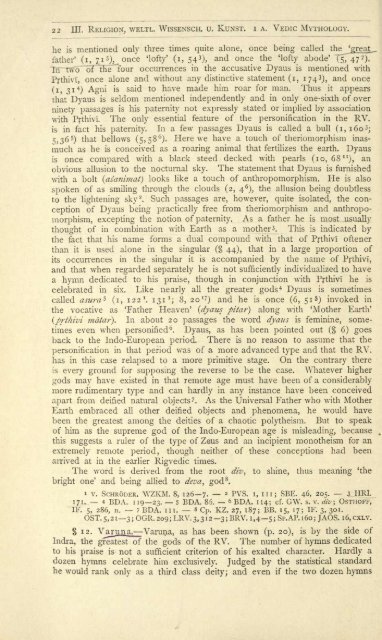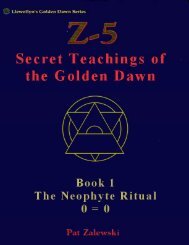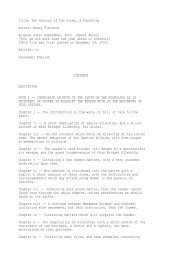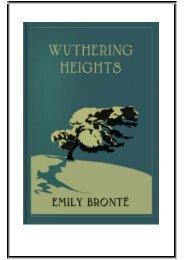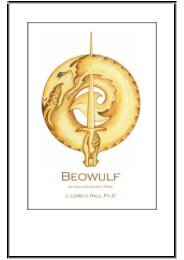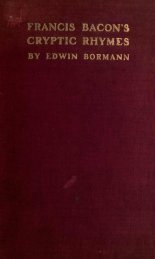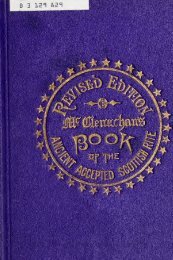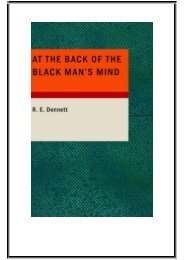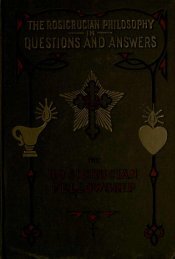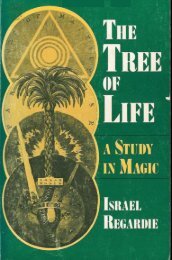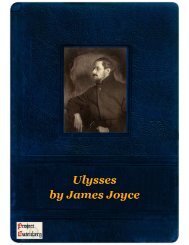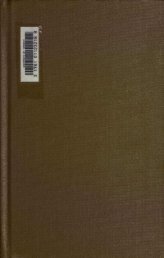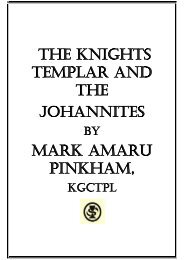download PDF version: 25.9MB - Global Grey
download PDF version: 25.9MB - Global Grey
download PDF version: 25.9MB - Global Grey
Create successful ePaper yourself
Turn your PDF publications into a flip-book with our unique Google optimized e-Paper software.
22 III. RELIGION, WELTL. WISSENSCH. u. KUNST. i A. VEDIC MYTHOLOGY.<br />
he is mentioned only three times quite alone, once being called the<br />
3<br />
father (1,715)^<br />
once lofty (i, 54 an(* once the loft<br />
), y abode 1^47 7 )-<br />
TrT~tWoof the~~four occurrences in the accusative Dyaus is mentioned with<br />
PrthivT, once alone and without any distinctive statement (i,<br />
3<br />
i;4 ), and once<br />
(i, 3 1 4 ) Agni is said to have made him roar for man. Thus it appears<br />
that Dyaus is seldom mentioned independently and in only one-sixth of over<br />
ninety passages is his paternity not expressly stated or implied by association<br />
with Prthivl. The only essential feature of the personification in the RV.<br />
is in fact his paternity. In a few passages Dyaus is called a bull (i, 160^-<br />
5,36 5 ) that bellows (5,58 6 ). Here we have a touch of theriomorphism inas<br />
much as he is conceived as a roaring animal that fertilizes the earth. Dyaus<br />
is once compared with a black steed decked with pearls (10, 68"), an<br />
obvious allusion to the nocturnal sky. The statement that Dyaus is furnished<br />
with a bolt (asanimat) looks like a touch of anthropomorphism. He is also<br />
spoken of as smiling through the clouds (2, 4 6 ), the allusion being doubtless<br />
to the lightening sky 2 . Such passages are, however, quite isolated, the con<br />
ception of Dyaus being practically free from theriomorphism and anthropo<br />
morphism, excepting the notion of paternity. As a father he is most usually<br />
thought of in combination with Earth as a mother 3. This is indicated by<br />
the fact that his name forms a dual compound with that of Prthivl oftener<br />
than it is used alone in the singular ( 44), that in a large proportion of<br />
its occurrences in the it singular is accompanied by the name of and that when regarded separately<br />
Prthivl,<br />
he is not sufficiently individualized to have<br />
a hymn dedicated to his praise, though in conjunction with Prthivl he is<br />
celebrated in six. Like nearly all the greater<br />
4<br />
gods Dyaus is sometimes<br />
called asura^ (i, 122 x x<br />
. 131 ; 8, 20* ) and he is once (6, 51$) invoked in<br />
the vocative as Father Heaven (dyaus pitar) along with Mother Earth<br />
(prthivi mdtar}. In about 20 passages the word dyaus is feminine, some<br />
6<br />
times even when . personified Dyaus, as has been pointed out ( 6) goes<br />
back to the Indo-European period. There is no reason to assume that the<br />
personification in that period was of a more advanced type and that the RV.<br />
has in this case relapsed to a more primitive stage. On the contrary there<br />
is every ground for supposing the reverse to be the case. Whatever higher<br />
gods may have existed in that remote age must have been of a considerably<br />
more rudimentary type and can hardly in any instance have been conceived<br />
apart from deified natural 7 . objects As the Universal Father who with Mother<br />
Earth embraced all other deified objects and phenomena, he would have<br />
been the greatest among the deities of a chaotic polytheism. But to speak<br />
of him as the supreme god of the Indo-European age is misleading, because<br />
this suggests a ruler of the type of Zeus and an incipient monotheism for an<br />
extremely remote period, though neither of these conceptions had been<br />
arrived at in the earlier Rigvedic times.<br />
The word is derived from the root div, to shine, thus meaning the<br />
bright one and being allied to deva, god 8 .<br />
i v. SCHRODER. \VZKM. 8, 1267. 2 PVS. i, ill; SEE. 46, 205. 3 HRL<br />
171. 4 BDA. 11923. 5 BDA. 86. 6 BDA. 114; cf. GW. s. v. div\ OSTHOFF,<br />
IF. 5, 286, n. 7 BDA. 111. 8 Cp. KZ. 27, 187; BB. 15, 17; IF. 3, 301.<br />
OST.5,2i 3;OGR.2o9;LRV.3,3i2 3;BRV. 1,4 5;Sp.AP.i6o;JAOS. i6,cxLV.<br />
the side of<br />
S 12. Varun a. Varuna, as has been shown (p. 20), is by<br />
Indra, the greatest of the gods of the RV. The number of hymns dedicated<br />
to his praise is not a sufficient criterion of his exalted character. Hardly a<br />
dozen hymns celebrate him exclusively. Judged by the statistical standard<br />
he would rank only as a third class deity; and even if the two dozen hymns


